What's it like to have chicken pox?
Chickenpox is a viral infection caused by the varicella zoster virus with an incubation period of about two weeks. The onset of the disease is similar to a cold, with fever, myalgia, nausea, headache and sore throat. One day after the onset of fever, scattered pink papules appear on the skin, and small blisters gradually form at the tip. The disease has a certain self-limiting, about 10 days rash healed, the skin does not leave scars. Chickenpox can be immunized for life after the onset of the disease. Chickenpox is contagious within 20 days of its onset, and isolation is important. Currently there is a varicella vaccine available, usually with a 10-year preventive effect. Chickenpox can be treated symptomatically after the occurrence of high fever can be used antipyretic, 38 degrees below can not be used, fever will not be too long. Topical acyclovir ointment can be applied to the skin. Itching can be treated with glycerine lotion, and in severe cases, antihistamines such as diphenhydramine can be taken orally. Antiviral drugs are usually not needed. Chickenpox rarely occurs in adults and is most common in immunocompromised patients. Chickenpox in pregnant women during the first 3 months of pregnancy is very likely to produce cardiac malformations in newborns, so it is important to prevent chickenpox vaccination.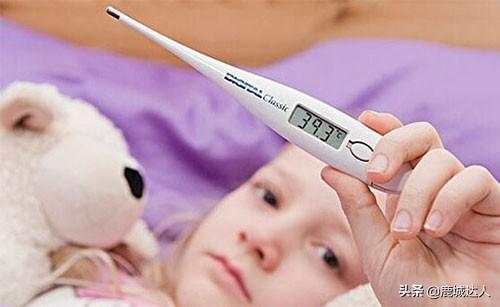
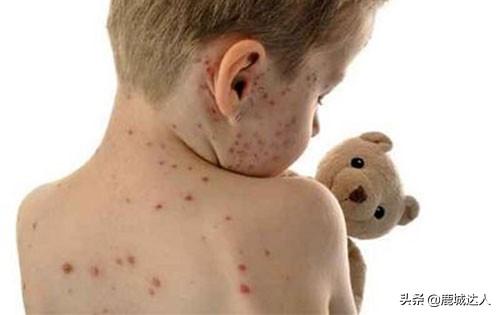
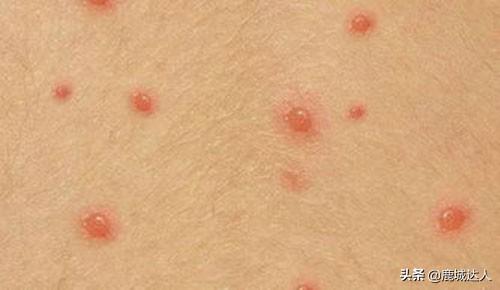
Many people consider chicken pox to be a rite of passage from childhood. Chickenpox is a relatively harmless virus, and in most cases it becomes more of an annoyance than a life-threatening disease. However, it should be noted that complications from chickenpox can lead to death in patients, especially children. A serious complication of chickenpox, Reye's Syndrome, occurs when a child with chickenpox takes aspirin with a fever.
In some cases, children develop bacterial infections as a result of chickenpox infection. In addition, in rare cases, patients develop pneumonia or encephalitis. Sepsis is another rare complication of chickenpox. Chickenpox outbreaks, while making people more uncomfortable, stem from the highly contagious varicella zoster virus.
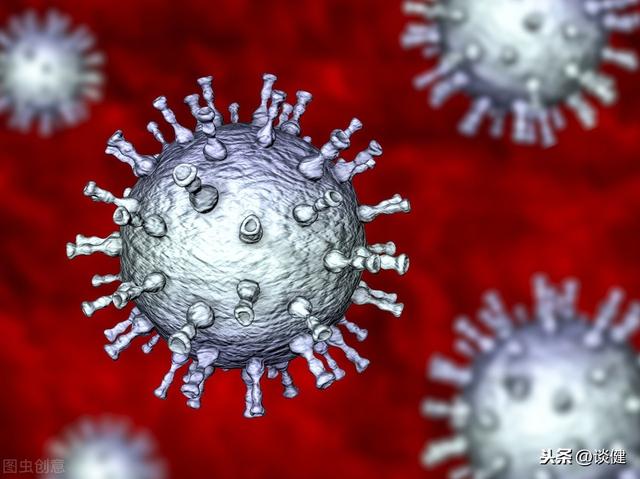
What the hell is chicken pox?
1Chickenpox is a viral infection.a rash of diseases, mostly seen in children. At the onset of chickenpox, small, fluid-filled blisters appear on the child's body and are accompanied by aPersistent high fever of 39°C for 1-5 days.. These blisters will form a rash, which will appearcentripetal distributionThe sequence occurs in theTorso, scalp, faceas well asLimbs, mainly trunk. In addition, most people with chickenpox experience the disease as aSpots, pimples, and blisters和form a scab, a phenomenon clinically referred to as "four generations under one roof”
2The varicella virus precedes the onset of the disease.1-2 days until herpes scabs overAll are very contagious. The virus can be transmitted through theairborne和respiratory droplet transmission, such as respiratory droplets produced when a person sneezes or coughs. The virus also passes through thesaliva transmission(by kissing or sharing drinks or eating utensils). When a person touches another person by hugging, shaking hands, or merelyExposure to persons carrying the virusChickenpox can also be spread when It can also be spread by handling objects contaminated with the virus, such as doorknobs. Mothers can transmit the virus to their babies through breastfeeding, pregnancy and childbirth.
3If you get chickenpox for the first time, you will be immune to the virus for the rest of your life after you recover from the disease. But the varicella zoster virus will survive in the body for the rest of its life and cause outbreaks of shingles later in life.
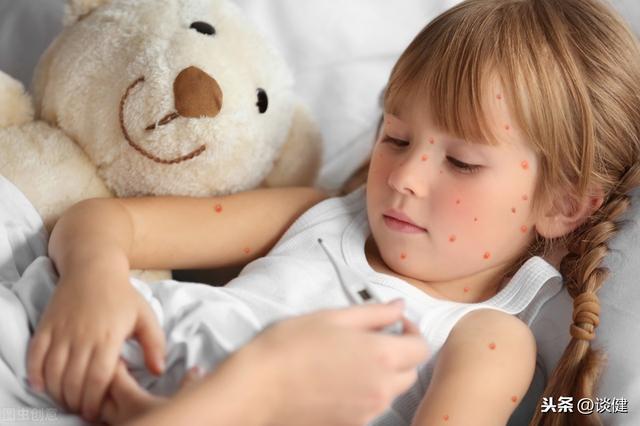
Complications of chickenpox are what you should really be aware of
In general, the typical symptoms of chickenpox are not life-threatening, but it's some of the serious complications during the onset of chickenpox that each of us should be aware of.
1. Varicella encephalitis: Although encephalitis caused by chickenpox is not very common, with an incidence of less than one in a thousand. But that doesn't mean it's not possible, and most will develop in the3-8 days after rash. The child will appearHeadache, vomiting, comaevenanthropomorphism. Some patients also experienceHemianopsia, aphasiaand other manifestations. CT scan of the head shows diffuse or focal brain damage.
2. Varicella pneumonia: This does not usually occur among children or adults with normal immunity. But it occurs more frequently in immunodeficient people or newborns. It usually occurs in1-5 days after illnessoccurs, the patient developsFever, cough, dyspnea, or evenblood circulating within the body (often as a metaphor for strong emotion or hot-bloodedness)。
3. Reye's syndrome:As I've mentioned above, giving aspirin to treat and reduce fever when a child has a fever due to chicken pox is likely to lead to Reye's Syndrome.
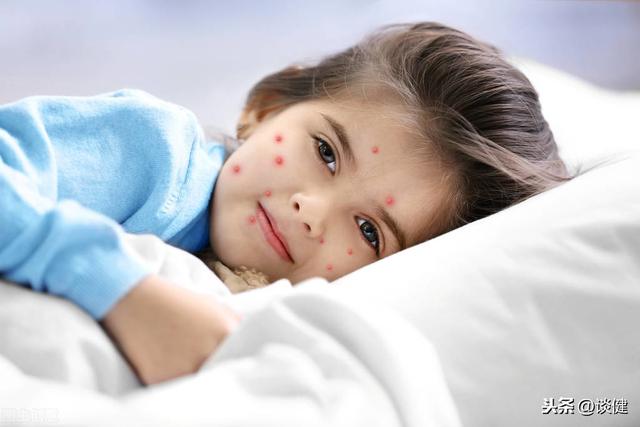
How do you treat chicken pox?
1. Most people who suffer from chickenpox can be completely cured without treatment. The key principle to avoiding complications from chickenpox during this process is to avoid scratching the sores with the patient's fingernails. This is difficult to do with small children, but it requires adults to help their children trim their nails and keep their fingers hygienic until the blisters are scabbed over.
2. For severe cases, antiviral therapy with acyclovir may be preferred. Children with normal immunity may not need antiviral therapy. Itchy skin can be treated with glycerine lotion or oral antihistamines. Acetaminophen may be given to reduce fever, and aspirin is contraindicated.
3. Keep the child at home and isolate him/her until all the rashes are crusted over to avoid spreading the infection to others. During this process, parents always monitor the child's fever and other complications. At the first sign of abnormality, go to the hospital immediately.
Chickenpox is now so easy to treat that the chickenpox vaccine is actually no longer necessary
A few years ago, chicken pox on the back, initially felt very itchy, it has been to pick, picking a piece of all red, but also can not stop itching, initially thought it was a pimple, and then more and more, all of a sudden hair out, a very large piece of red and bright, and pain and itching, sleep at night can only sleep on their stomachs, the key to the nerve pain involved.
The back to the hospital prescribed medication, eat a lot of days before deflating the scars, when the doctor said it was blood heat, caused by, and now a little regret, at that time did not continue to eat through the course of treatment.
Sometimes there are herpes at the corners of the mouth, I think it was not cured at that time.
Appearance of such skin diseases is caused by viral attacks, a reminder, the younger the more attention should be paid to the longer time will cause a gradual decline in the function of the kidneys and liver, as soon as possible to the hospital to ask the doctor, do not ask people who do not know medicine, I do not know who to listen to? Will delay the opportunity for treatment, according to the old man in the past, the heat virus attack, noun: chicken pox, herpes, measles, etc. should not be careless.
Chickenpox seems to be a virus, find a professional dermatologist to clear the heat and detoxification, stop itching, more exercise, improve their immunity on the line.
Chickenpox occurs most often in preschool children.
Tell me about my own experience. My daughter had chicken pox when she was in preschool. (Daughter was vaccinated against chicken pox)
At first, she had a fever, but it wasn't high, around 38 degrees. Then there were small red spots on her body, during which she went to the hospital for injections for the fever, and the doctor didn't say it was chicken pox.
When I got home, I quickly developed blisters on my body.
It was then taken to the hospital where the doctor just prescribed a glyburide rub.
Be sure to rub it two or three times a day to stop the itching, and don't pick at the chicken pox for the kids, or it will get infected.
The disease takes 7-10 days to heal.
During this period, observe at home, pay attention to hygiene and do not go out.
Chickenpox is a common infectious disease. Children and adolescents are the most prevalent group, similar to the symptoms of the flu, headache and fever, fatigue, loss of appetite, muscle and joint pain, incubation period of 12 a 21 days. I went to elementary school when I had it, began with a rash on the back, because the itch is not unconscious hands scratching, the result is that the whole body is red dots, herpes within the clear liquid by the little hands scratching pustules inflammation!
Chickenpox itself is a viral infection, so people who have had chickenpox basically become immune to it once, in which case they will never get it again for life.
Chickenpox is actually a common virus, only contagious. Chicken pox is very mild in children nowadays. Some children have good immune system and take some antiviral medication, and it will subside in a week or so. Some children may have a slight fever, depending on their individual constitution. But there is no need to worry. What you need to pay attention to is not to go to kindergarten and other public places, there are two children in the family should also be separated from household goods. Drink plenty of boiled water, eat a light diet, and you will soon recover!
This question and answer are from the site users, does not represent the position of the site, such as infringement, please contact the administrator to delete.